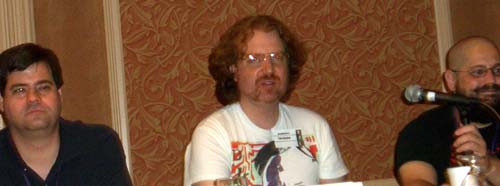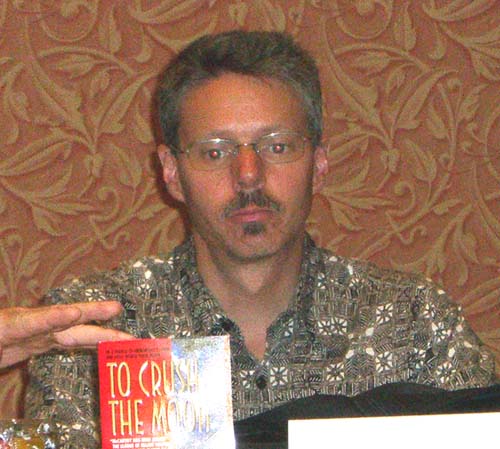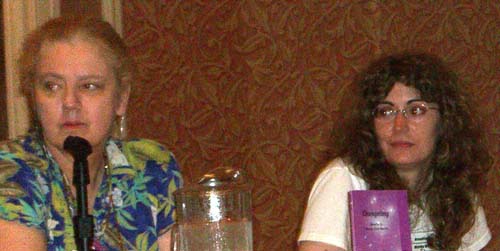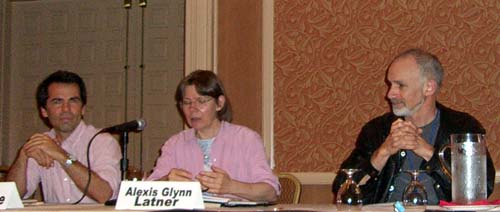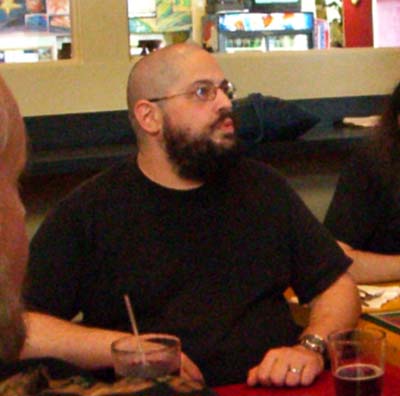What this panel was supposed to be about, according to the ArmadilloCon program book: "Our panel of space scientists and afficionados will talk about recent and upcoming developments outside the earth's atmosphere."
Moderator Ctein challenged each panelist to tell us about a really really cool thing that happened in the outer space in the last year. To sum up panelists answers, it was the Genesis mission, Cassini mission to Saturn, Huygens probe, also the fact that the Mars Rovers were (at the time of this discussion) a year and a half old and still ticking. Commercial space flight was also mentioned, though Wil McCarthy said he found it worthwhile to acknowledge not because it was technologically revolutionary, but because it was done cheaply. "Spaceship One broke an important emotionally barrier", said McCarthy. "People used to think space tourism was unattainable, financially and [otherwise], but now that thinking flipped. Now people think space tourism is worth investing."
In keeping with the spirit of the times (open source movement, mash-ups, etc.) the panelists expressed their amazement at how much astronomy work is done collaboratively, and moreover, how much of it is done by amateurs. Wil McCarthy mentioned virtual observatories, where amateurs can analyze data that's already been gathered by telescopes, space probes and such, and even make their own discoveries. Some discoveries have been made that way. Virtual observatories give amateurs access to very high resolution images of some spectra. Ctein remarked that astronomy is currently the most egalitarian of the sciences. It is possible to do serious astronomical work with little credentials.
Speaking about astronomers collaborating over the data obtained by the Huygens probe, Wil McCarthy said: "It was like fan fiction. People looked at pictures through different filters and painted them different colors."
"Planetary science folk art?" added Ctein.
So even this alpha-geeky, low-quirkiness-factor panel had some quotable moments.

Left to right: David Lee Anderson, Wil McCarthy, Ctein, John Gibbons. Here are more posts from ArmadilloCon 2005.
* Ctein is pronounced kuh-TINE. It's his official name now, even though he wasn't born with it. Yes, he uses a single name. I was surprised he hasn't run into any serious bureaucratic hassles because of that. I thought most government systems expect people to have a minimum of two names, and you can't very well argue with a computer that demands you enter both a first and a last name. I'm speaking from personal experience. Name-wise I am unusually poor, compared to a typical American. I don't have a middle name. When I changed my last name after marriage and tried to get a new driver's license, I was told by a woman at the Bureau of Motor Vehicles that their computer system required me to have a middle name. So she told me she was going to put my maiden name as the middle name. I would have preferred not to, but, as I said, you can't argue with a computer -- that's pretty much what she told me. :-) I guess I was fortunate that Texas BMV computers weren't that draconian 5 years earlier, when I first got a driver's license in Texas. I was single then and could not have legitimately come up with anything that could pass for a middle name.)
